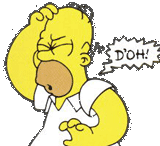"When the Most Rev. Justin Welby, the archbishop of Canterbury, said recently that at times he questioned if God was really there, much of the reaction was predictably juvenile: Even God’s earthly emissary isn’t sure if the whole thing is made up! The International Business Times called it “the doubt of the century.”
...

Archbishop Welby’s candor only makes him human. He may lead 80 million Anglicans worldwide, but he is also a man who knows anguish, rage, incomprehension and the cold bareness of grief. He lost his firstborn child, Johanna, a 7-month-old baby girl, in a car accident in 1983, a period he has described as “utter agony.” As a teenager he cared for an alcoholic father. When explaining his thoughts on doubt, he referred to the mournful Psalm 88, which describes the despair of a man who has lost all of his friends and cries out, “Why, Lord, do you reject me and hide your face from me?” The psalm reads bleakly: “Darkness is my closest friend.”
Faith cannot block out darkness, or doubt. When on the cross, Jesus did not cry out “Here I come!” but “My God, why have you forsaken me?” His disciples brimmed with doubts and misgivings.
Just as courage is persisting in the face of fear, so faith is persisting in the presence of doubt. Faith becomes then a commitment, a practice and a pact that is usually sustained by belief. But doubt is not just a roiling, or a vulnerability; it can also be a strength. Doubt acknowledges our own limitations and confirms — or challenges — fundamental beliefs, and is not a detractor of belief but a crucial part of it.
...
The philosopher Bertrand Russell put it best. The whole problem with the world, he wrote, is that “the stupid are cocksure while the intelligent are full of doubt.” Of that at least we can be certain. I’m pretty sure, anyway."
... excerpted from a NY Times post by Julia Baird. Read it in full
here.










